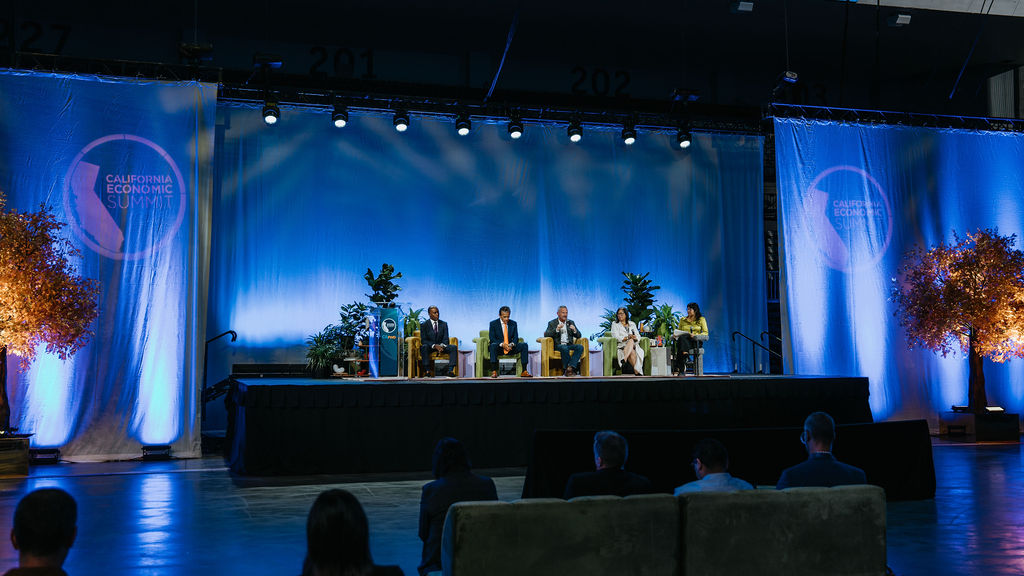 Photo Credit: Day One Media Agency
Photo Credit: Day One Media Agency
By Noah Ferris
Co-hosted by CA FWD, the 21st Century Alliance, and CalMatters, the Governor Candidate Forum brought together four gubernatorial candidates for a policy-focused discussion on strengthening California’s economy and expanding opportunity statewide. Moderated by CalMatters’ Capitol Reporter Jeanne Kuang, the candidates—including Riverside County Sheriff Chad Bianco, State Superintendent Tony Thurmond, former Los Angeles Mayor Antonio Villaraigosa, and former State Controller Betty Yee—shared their visions for California’s economic future.
Affordability at the Center
Affordability dominated the conversation. Whether the topic was housing, energy, or regulation, each candidate acknowledged that the cost of living now defines daily life for most Californians.
Yee argued that affordability cannot be separated from economic mobility, pointing to the need for education, training, and jobs that help Californians advance. Villaraigosa called it “the issue of our time,” describing families priced out of housing and struggling with rising utility and transportation costs. Thurmond said state government must act on both wages and prices, proposing expanded tax credits and faster homebuilding. Bianco blamed overregulation for pushing up costs and discouraging growth, calling it a “silent tax” that falls hardest on working families.
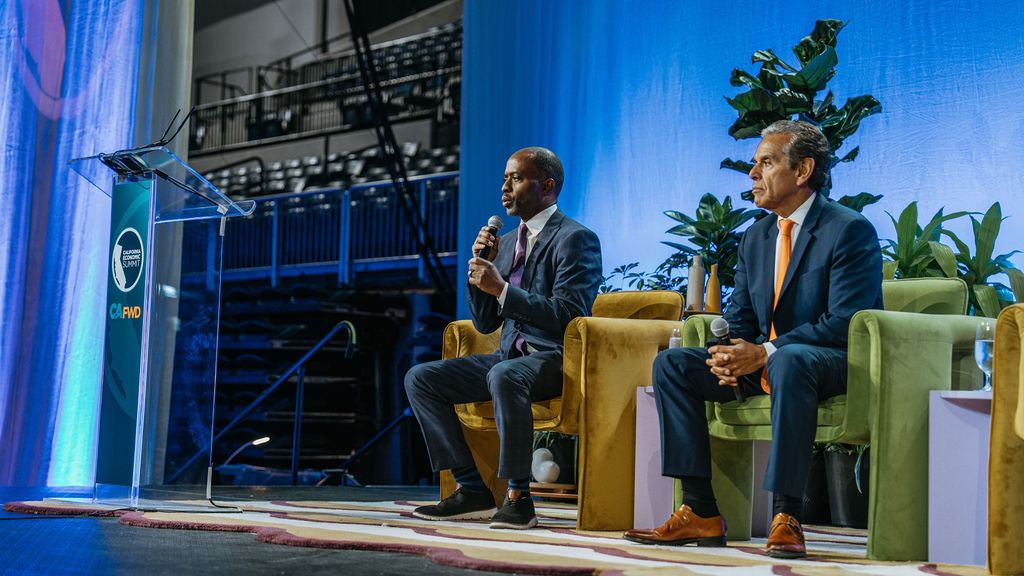 Photo Credit: Day One Media Agency
Photo Credit: Day One Media Agency
Infrastructure as Economic Foundation
The discussion quickly turned to California’s physical foundation. All four agreed that decades of uneven investment have contributed directly to the state’s affordability problems.
Thurmond described a need for major expansion in housing supply to match the state’s population and workforce. Yee said housing and job creation must be planned together so that new development strengthens communities. Bianco argued that dense regulation adds cost and delay at every step. Villaraigosa urged reform of the California Environmental Quality Act to make infill projects move faster.
Their debate reflected a shared concern that infrastructure has become the bottleneck constraining both affordability and opportunity.
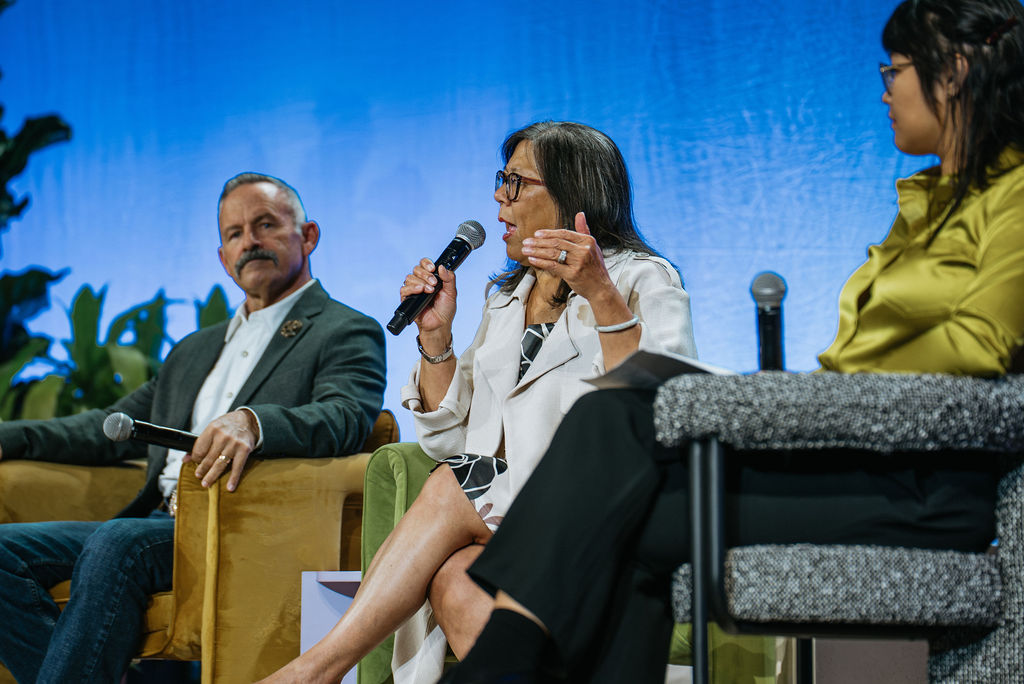 Photo Credit: Day One Media Agency
Photo Credit: Day One Media Agency
Integrating the Energy Transition
Energy policy prompted one of the liveliest exchanges. Villaraigosa warned that California’s progress on renewables has outpaced its storage and transmission infrastructure, leaving the grid vulnerable to demand spikes. He argued for an “all-of-the-above” approach that includes bridge fuels such as natural gas and newer nuclear technologies.
Thurmond emphasized workforce training so clean-energy investment translates into stable, middle-class careers. Bianco questioned whether state-imposed timelines are realistic, saying private innovation—not mandates—will ultimately determine success.
Yee urged a broader lens. She said the energy transition should shape every major initiative—from how California builds homes and schools to how it prepares for emergencies—because climate resilience underpins the state’s long-term economy.
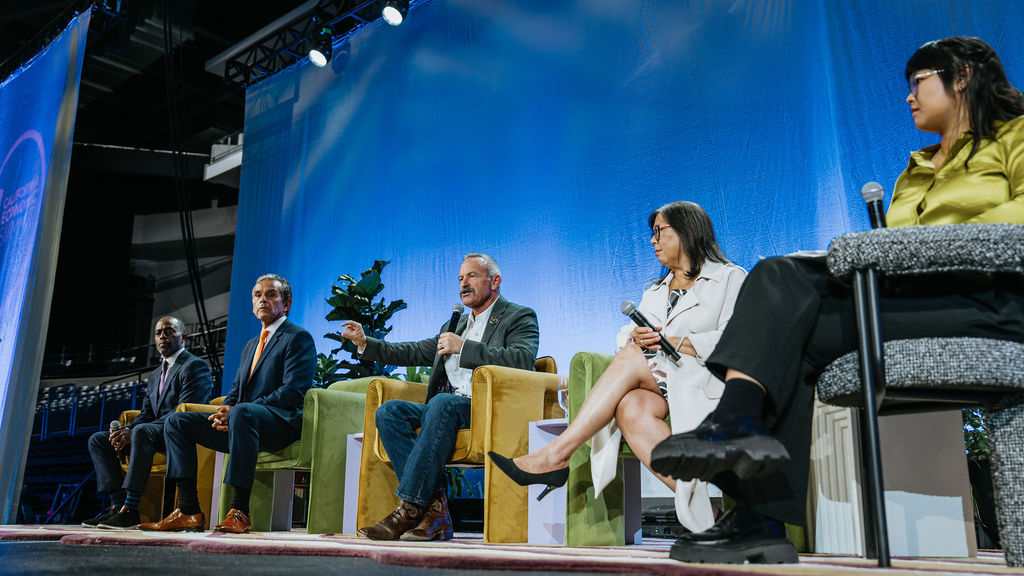 Photo Credit: Day One Media Agency
Photo Credit: Day One Media Agency
Extending Prosperity to Every Region
As the conversation moved to regional growth, the candidates found alignment. The Central Valley, inland regions, and rural counties, they agreed, too often face higher costs and fewer opportunities than coastal cities.
Bianco argued that California’s problem is not water scarcity but poor management that keeps farms from getting what they need. Yee spoke about the need for place-based policies that reflect regional differences rather than one-size-fits-all programs. Villaraigosa proposed major transportation and agricultural investments to anchor the Central Valley’s economy. Thurmond highlighted broadband expansion and use of surplus public land for workforce housing.
While their ideas varied, they delivered a consistent message that economic inclusion depends on connecting all parts of the state to growth.
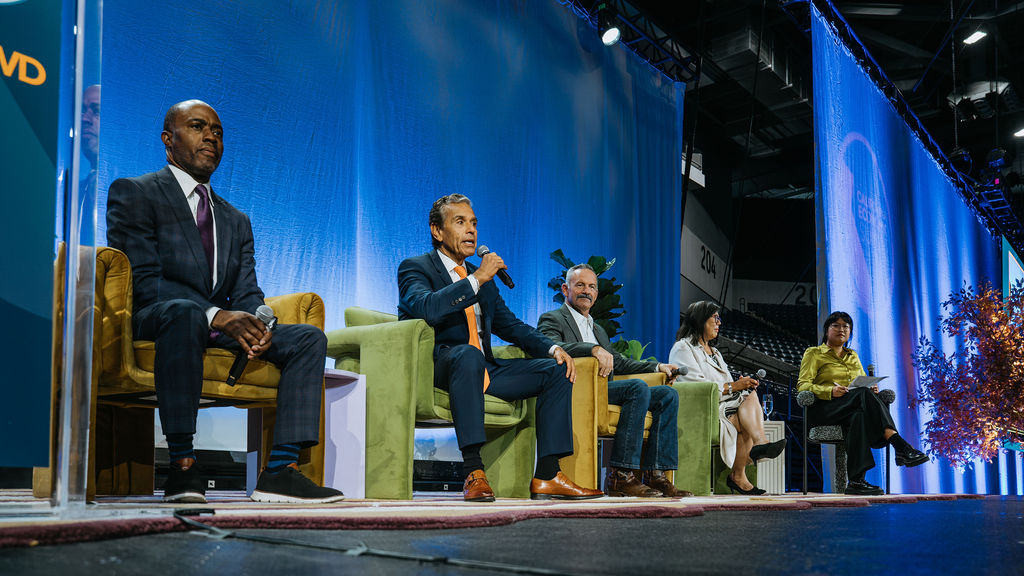 Photo Credit: Day One Media Agency
Photo Credit: Day One Media Agency
Workforce and Business Growth
Jobs and competitiveness tied many of these issues together. Yee pointed to sustained investment in K–12 and higher education as the foundation of a strong economy. Bianco argued that keeping businesses in California by cutting red tape and taxes is essential to keeping families here. Thurmond discussed expanding career and technical education that leads to high-wage work in sectors such as clean energy and AI. Villaraigosa reflected on lessons from improving Los Angeles’s graduation rates and said education systems must be directly linked to employer needs.
The candidates also agreed on another point: California remains a difficult place for small businesses to operate. They traded ideas for reducing compliance costs, improving permitting, and making state regulations easier to navigate, especially for entrepreneurs and small employers that drive local job creation.
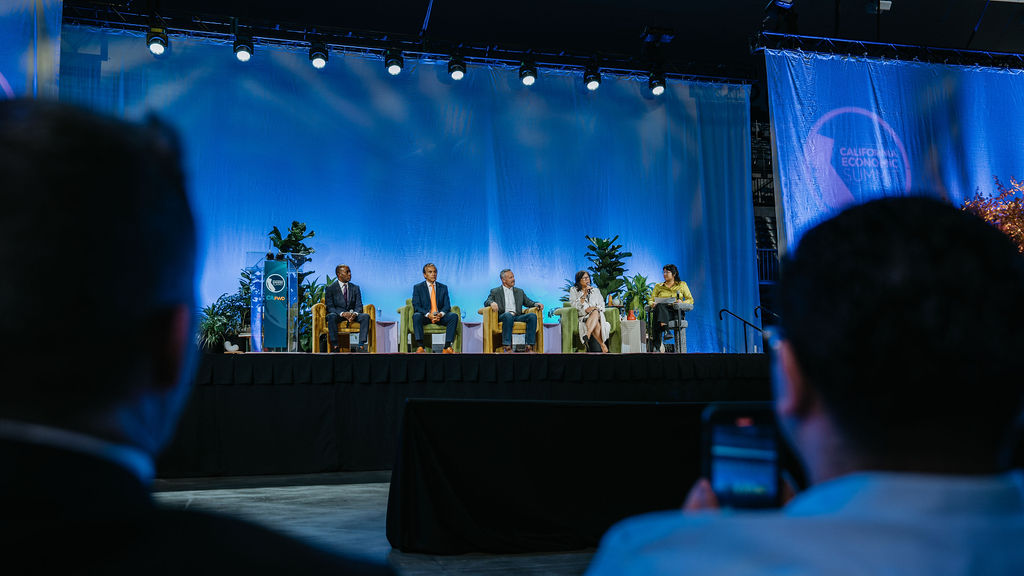 Photo Credit: Day One Media Agency
Photo Credit: Day One Media Agency
Moving Forward
For CA FWD, the forum highlighted why building a resilient, sustainable, and inclusive economy is critical strengthening the systems that connect people to opportunity in every region.
Though their experiences differ, the candidates shared a vision of a California where progress depends on broad participation, not just prosperity at the top. The debate made clear that restoring affordability and expanding opportunity remain at the heart of the state’s economic future.
Interested in hearing everything the candidates had to say? Watch the live-stream recording here.
Noah Ferris serves as Chief of Staff for a leading public affairs and geopolitical strategy group, providing counsel to clients navigating complex political and policy environments and helping develop integrated strategies that connect communications, regulation, and business goals.

